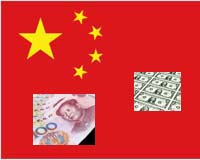| . |  |
. |
Moscow (AFP) June 14, 2009 Brazil, Russia, India and China flaunt their unity against more established powers this week as the four emerging economic giants hold the first summit of their grouping, known as BRIC. But while they will express determination to act together during the current economic crisis and beyond, they are years away from being a counterbalance to established global institutions, analysts say. It is also unclear whether the presidents Dmitry Medvedev of Russia, Hu Jintao of China, Luiz Inacio Lula da Silva of Brazil and Indian Prime Minister Manmohan Singh will agree to establish a more permanent international entity. In any case, Russia will enjoy bragging rights as host of the first formal BRIC summit, which is set to take place on Tuesday in Yekaterinburg, a city some 1,420 kilometers (880 miles) east of Moscow in the Ural Mountains. "Russia believes this format to be rather promising economically as well as politically," Medvedev's spokeswoman, Natalia Timakova, told reporters this week. But she reserved judgment on the broader implications of the summit. "It is too early to make any predictions," she said. "We need to see how this first meeting goes." Russian foreign ministry spokesman Andrei Nesterenko told reporters that the four leaders would adopt a joint declaration calling for the "formation of a more just and democratic world order." However, he could not say whether the summit would be the first in a series of regular meetings, saying it would be up to the leaders to decide. Nesterenko also sought to quell speculation that the gathering was meant as a snub to US President Barack Obama. "This is not a reproach to anyone," he said. Analysts say the BRIC nations are displaying a growing willingness to coordinate their efforts as they seek to counter US global domination and forge a bigger role for themselves. The BRICs are expected to be major buyers of the very first bonds that the International Monetary Fund (IMF) is working to issue, in line with commitments by developed and developing economies to provide 1.1 trillion dollars to the IMF and other global bodies to help the poor. China has said that it is considering buying up to 50 billion dollars' worth of the new financial instrument, while Russia and Brazil could buy up to 10 billion dollars each. Both Russia and China have in recent months come out in favour of revamping global financial structures, saying there is a need for a new supra-national currency to prevent a repeat of the global economic crisis. Moscow in particular has sharply criticised the US dollar's role as the dominant global reserve currency. But analysts are sceptical that the BRICs can create a new reserve currency or act as a tight economic or financial entity any time soon, even as they acknowledge the importance of the group's first gathering. Rory MacFarquhar, a Moscow-based economist at Goldman Sachs, the investment bank credited with coining the BRIC acronym, said the significance of the summit would be political rather than economic. "There's considerable interest -- you could say from all (the BRIC) countries but Russia in particular -- in creating an alternative" to established international organisations, he said. He added that Tuesday's high-profile meeting would be part of the Kremlin's "crusading against anything it considers unipolarity." Vladimir Osakovsky, head of strategy for UniCredit bank in Moscow, said the idea of a new reserve currency was "a politically motivated 'news-maker' rather than the first step towards creating a new tool of global economic policy." To establish the new reserve currency, Osakovsky said in a note to clients, the BRICs would have to merge their economies, abandon their own currencies and give up control over their monetary policies at home -- moves they are not prepared for. Of the major economies, powerhouse China is seen as having the best shot at eclipsing the United States as the world's largest market. The BRIC leaders first met informally on the sidelines of a Group of Eight major economies summit in Toyako, Japan, last year. Tuesday's summit will come just after a Monday meeting of the Shanghai Cooperation Organisation (SCO), a group dominated by Russia and China that has been described as a potential counterweight to Western-dominated bodies. Iran's fiercely anti-US President Mahmoud Ahmadinejad is due to attend the SCO meeting as an observer, as is Afghan President Hamid Karzai, the Russian foreign ministry said. Yekaterinburg, where both summits are to take place, is best known as the scene of the execution of Tsar Nicolas II and his family by Bolsheviks in 1918. Share This Article With Planet Earth
Related Links The Economy
 World banks must act against toxic assets: China
World banks must act against toxic assets: ChinaBeijing June 12, 2009 The US government and global financial authorities need to remove toxic assets from their banking systems to restore world economic stability, a top Chinese banking regulator said Friday. Actions taken by governments worldwide to stabilise the financial sector "have gradually eased the panic," Liu Mingkang, chairman of the China Banking Regulatory Commission, told a forum. "But from the ... read more |
|
| The content herein, unless otherwise known to be public domain, are Copyright 1995-2009 - SpaceDaily. AFP and UPI Wire Stories are copyright Agence France-Presse and United Press International. ESA Portal Reports are copyright European Space Agency. All NASA sourced material is public domain. Additional copyrights may apply in whole or part to other bona fide parties. Advertising does not imply endorsement,agreement or approval of any opinions, statements or information provided by SpaceDaily on any Web page published or hosted by SpaceDaily. Privacy Statement |